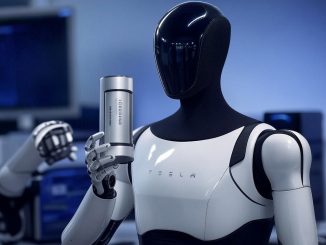- New 25% tariffs imposed by President Trump on the automotive industry are raising concerns for Tesla (TSLA), with Wedbush analyst Dan Ives warning of their impact despite his bullish $550 price target.
- Ives notes that 40% – 50% of auto parts for U.S.-made vehicles come from abroad, meaning Tesla will face higher costs and price increases, as a fully U.S.-sourced car remains unfeasible.
- Shifting just 10% of the supply chain to the U.S. would take three years and cost hundreds of billions, per Ives, who sees no winners in this tariff policy, only challenges for Tesla and the broader sector.

Tesla (TSLA), a dominant force in the electric vehicle (EV) market, finds itself at a crossroads as new 25% tariffs imposed by President Trump on the automotive industry send ripples of concern through investors and analysts alike. Wedbush Securities analyst Dan Ives, long recognized for his staunch support of Tesla and its CEO Elon Musk, has recently tempered his enthusiasm, despite holding firm on an ambitious $550 price target. In a recent note, Ives articulated a sobering perspective on the tariffs’ implications, signaling a shift from his typically unwavering optimism about the company’s trajectory.
The tariffs, targeting an industry already grappling with complex global supply chains, pose a significant challenge even for a company like Tesla, which boasts substantial U.S.-based production. Ives points out that approximately 40% – 50% of auto parts for U.S.-made vehicles – including those from domestic manufacturers – originate abroad, debunking the notion of a fully American-made car as an unattainable ideal in today’s interconnected economy. For Tesla, this reliance on international components means that the tariffs will inevitably drive up costs, forcing the company to raise prices and potentially erode its competitive edge in the EV market, a sector Ives has long championed as Tesla’s domain of dominance.
Ives estimates that shifting just 10% of the auto supply chain back to the U.S. would take three years and demand hundreds of billions of dollars, introducing layers of complexity and disruption that no automaker, Tesla included, can easily sidestep. This projection underscores his broader assertion that the tariffs create no winners, only varying degrees of losers, with Tesla facing a hit despite its strong domestic manufacturing footprint. The analyst’s concern reflects a broader reality: the automotive industry’s globalized nature leaves even the most innovative players vulnerable to policy shifts, challenging Tesla’s ability to maintain its growth momentum as costs rise and consumer prices follow suit. Ives’ nuanced take – balancing his $550 target with a candid acknowledgment of headwinds – highlights the intricate dance between policy, economics, and Tesla’s market position in an increasingly uncertain landscape.
WallStreetPit does not provide investment advice. All rights reserved.
- Bulenox: Get 45% to 91% OFF ... Use Discount Code: UNO
- Risk Our Money Not Yours | Get 50% to 90% OFF ... Use Discount Code: MMBVBKSM
Disclaimer: This page contains affiliate links. If you choose to make a purchase after clicking a link, we may receive a commission at no additional cost to you. Thank you for your support!




What happened to “Oh, Tesla’s not a car company, it’s an AI company”?